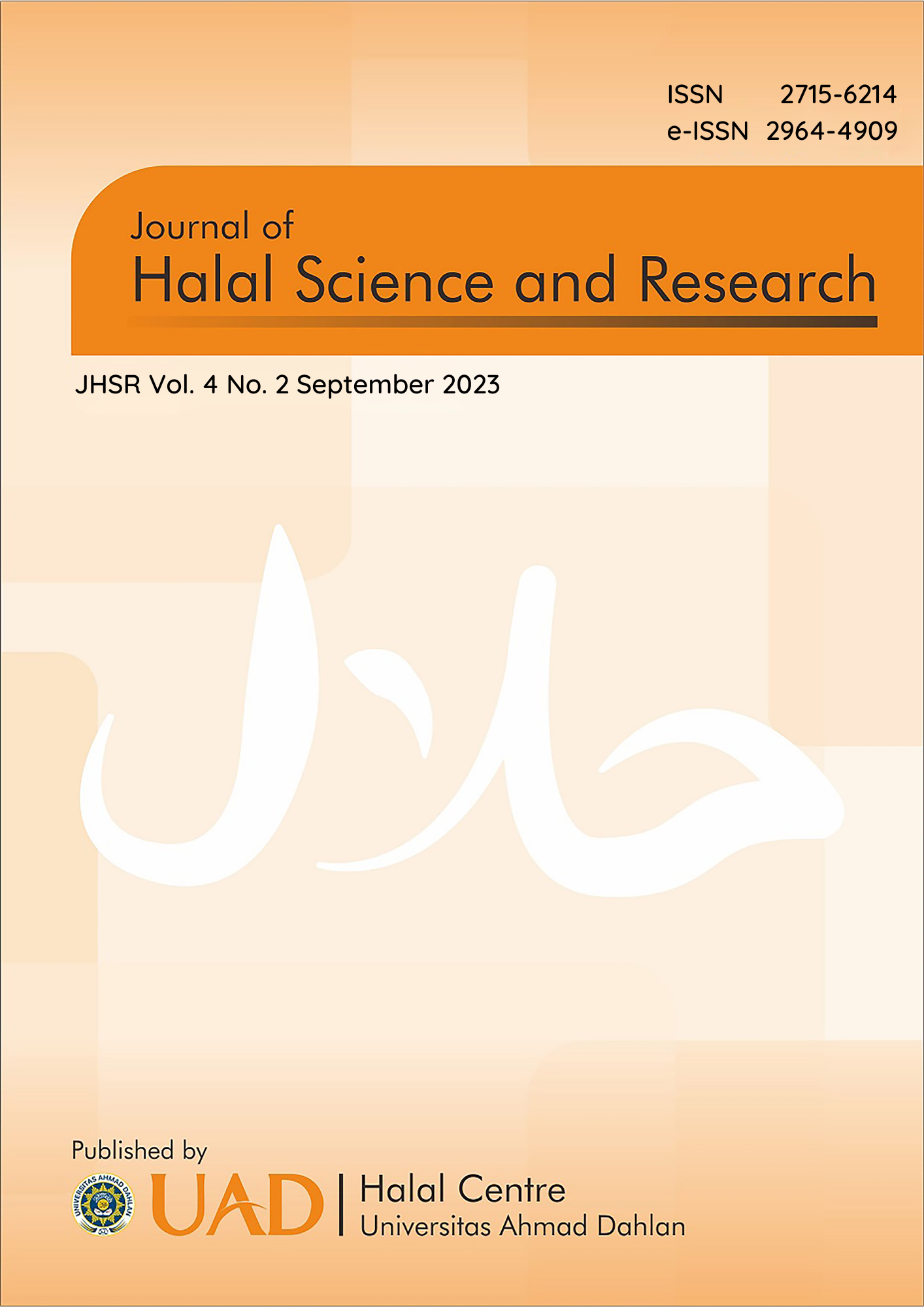Analysis of the theory of planned behavior on the use of halal-labeled cosmetics for students at the University of Islamic Malang
DOI:
https://doi.org/10.12928/jhsr.v4i2.7122Abstract
The practice of using halal cosmetics involves the intentional involvement of individuals, groups, or organizations in acquiring and using cosmetics that have obtained a halal certification. The behavior of individuals is subject to influence by multiple factors, including attitudes, subjective norms, behavioral control, and intention to use. These factors are motivated by the desires and needs of the individual. This study examines the influence of attitudes, subjective norms, behavioral control, and usage intentions on adopting halal-labeled cosmetics among college students. This research investigates the impact of attitudes, subjective norms, behavioral management, and usage intentions on adopting cosmetics labeled as "halal" among college students. The study employs online surveys as the primary method for data collection. The research utilized a purposive sampling methodology to select a sample size of 110 participants. The present study utilizes a data analysis technique that involves applying multiple regression analysis using the SPSS 25.0 software. The results of this study indicate that the variables of attitude, behavioral control, and intention to use have a statistically significant impact on the utilization of halal-certified cosmetic products. On the other hand, the influence of subjective norms on the utilization of halal decorative goods among students enrolled in the Faculty of Mathematics and Natural Sciences at the University of Islamic Malang is determined to have no significant statistical effect.
Keywords: Halal, Cosmetics, Students, Theory of Planned Behavior.
Downloads
Published
Issue
Section
License
Copyright (c) 2023 Universitas Ahmad Dahlan

This work is licensed under a Creative Commons Attribution-NonCommercial-ShareAlike 4.0 International License.
Authors who publish with JHSR (Journal of Halal Science and Research) agree to the following terms:
1. Authors retain the copyright and grant Universitas Ahmad Dahlan right of first publication with the work simultaneously licensed under a Creative Commons Attribution-NonCommercial-ShareAlike 4.0 License (CC BY-NC-SA 4.0) that allows others to share (copy and redistribute the material in any medium or format) and adapt (remix, transform, and build upon the material) the work for any purpose, even commercially with an acknowledgement of the work's authorship and initial publication in Universitas Ahmad Dahlan.
2. Authors are able to enter into separate, additional contractual arrangements for the non-exclusive distribution of the journal's published version of the work (e.g., post it to an institutional repository or publish it in a book), with an acknowledgement of its initial publication in Universitas Ahmad Dahlan.
3. Authors are permitted and encouraged to post their work online (e.g., in institutional repositories or on their website) prior to and during the submission process, as it can lead to productive exchanges, as well as earlier and greater citation of published work (See The Effect of Open Access).

This work is licensed under a Creative Commons Attribution-NonCommercial-ShareAlike 4.0 International License.




